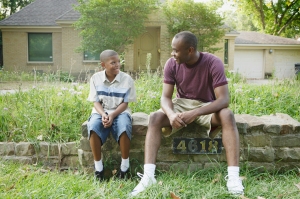Blog Archives
Blog of the Week: A Foster Mother’s Experience
 There are a lot of our readers who are considering foster care and becoming parents of a child in need. However, with every major decision, there are some worries. And while we could tell you all the great reasons for becoming a foster parent (and when is a better time than National Foster Care Month!?), we figured you might want to hear from someone who actually lives it day in and day out. The blog of the week we’ve chosen is “Adoption and Foster Care: My Personal Experiences”. In this account, you’ll follow the daily life of Mary who has adopted her oldest child through a private adoption, and adopted two children from foster care. Throughout her 15 years of marriage with her husband, she has welcomed 11 foster children in her home and has cared for each one as her own. So if you’re ever wondering what it’s like to be a foster parent, this tell-all includes the good and the bad (we’re only human!)
There are a lot of our readers who are considering foster care and becoming parents of a child in need. However, with every major decision, there are some worries. And while we could tell you all the great reasons for becoming a foster parent (and when is a better time than National Foster Care Month!?), we figured you might want to hear from someone who actually lives it day in and day out. The blog of the week we’ve chosen is “Adoption and Foster Care: My Personal Experiences”. In this account, you’ll follow the daily life of Mary who has adopted her oldest child through a private adoption, and adopted two children from foster care. Throughout her 15 years of marriage with her husband, she has welcomed 11 foster children in her home and has cared for each one as her own. So if you’re ever wondering what it’s like to be a foster parent, this tell-all includes the good and the bad (we’re only human!)
Consider becoming a foster parents today! Feel free to comment and we will get in contact with you as soon as possible!
Love Knows No Time
 True love transcends time and space… Is that just a romantic notion or is it real? Well, the Today Show captured that entire statement in a group of photographs, photographs of true love – the love of family. Today, we’re beating the Monday blues and warming our souls with an article depicting multi-generational love. These photos don’t just show faces of the elderly with their newborn or toddler family members; you can literally feel the love and joy radiating in that very moment right from the computer!
True love transcends time and space… Is that just a romantic notion or is it real? Well, the Today Show captured that entire statement in a group of photographs, photographs of true love – the love of family. Today, we’re beating the Monday blues and warming our souls with an article depicting multi-generational love. These photos don’t just show faces of the elderly with their newborn or toddler family members; you can literally feel the love and joy radiating in that very moment right from the computer!
The smiles and the pride pictured here offer more than words can even say. Through the years, other things may change in a family – people leave, people come in, people get older, people move – but there will always be love and a bond that can truly never be broken. No matter how old you get or how young you think you are, you will always have the ability to love someone else. So thank you thank you Today Show, for reminding us that no matter how old we get, or where we are in life, or what comes our way, we will always have our family to love and support us. So yes, I believe these images are absolute proof that love does not know time or boundaries. And today, if you have a family member that you haven’t spoken to or told them you loved them, reach out. It’s never too late and you never know what power a simple “I love you” can hold.
See the photos and read the article here!
– KR
@WINFamilyServ
The Worst Advice Ever Given to Youth
 From our post about Child Trends a few weeks ago, it’s becoming very apparent how times are really changing. It’s even more apparent how we need to change the way we regard today’s youth. There is no perfect human being on this earth, therefore there is no perfect parent – it’s safe to say we may have made some mistakes along the way. What matters is that we want what’s best for our kids and that we love them with absolutely everything that we have! Whether they are our biological children, adopted children, or foster children. And let’s remember that we were kids once too! At times, from when we were kids until today, we got some pretty questionable advice from our elders that may or may not have worked out for us. We’ve gotten some pretty great advice growing up, like “ Never go to bed with your makeup on,” or “Fail to plan, plan to fail,” but what about the advice that doesn’t really hold true today? Let’s take a look at some of the worst advice given to youth over the years…
From our post about Child Trends a few weeks ago, it’s becoming very apparent how times are really changing. It’s even more apparent how we need to change the way we regard today’s youth. There is no perfect human being on this earth, therefore there is no perfect parent – it’s safe to say we may have made some mistakes along the way. What matters is that we want what’s best for our kids and that we love them with absolutely everything that we have! Whether they are our biological children, adopted children, or foster children. And let’s remember that we were kids once too! At times, from when we were kids until today, we got some pretty questionable advice from our elders that may or may not have worked out for us. We’ve gotten some pretty great advice growing up, like “ Never go to bed with your makeup on,” or “Fail to plan, plan to fail,” but what about the advice that doesn’t really hold true today? Let’s take a look at some of the worst advice given to youth over the years…
- “Do as I say, not as I do.” – Um, what? This is probably the top worst advice you can give to a youth today. Tracing back to our point about following footsteps and having role models… you are the first person your child sees. So why not be the best example for them? You want them to act in a certain way? Be that person. You want them to do certain things? You do them so you can teach them. Be the best person you can be for your child’s sake.
- “Don’t move out.” – Sure, there’s a time when it’s inconceivable that you move out… when you don’t know how to feed yourself. Just kidding. But many kids get this little tidbit of advice and find themselves sitting pretty at home a long time after they become perfectly capable of living on their own. The truth is, keeping your babies at home will truly stifle their growth. That’s why we move puppies to larger a crate, that’s why we transfer our plants and flower to larger pots – to accommodate and promote their growth!
- “Don’t talk to strangers.” – This is fine when you’re 5 years old. But how can a child socially function if they can’t talk to strangers. Classmates start as strangers. Best friends start as strangers. Significant others start as strangers. Business partners start as strangers. Maybe a better piece of advice would be to “Be careful of who you talk to”. A human being simply cannot function in society by being anti-social.
- “Why don’t you follow in ___________’s footsteps?” – This piece of advice can probably do more harm than good… especially when worded in that way. Teaching your child the important of being unique is one of the most important lessons out there. We must celebrate our child’s individuality. It’s not a problem to have role model’s, but don’t encourage your child to be just like someone else.
- “Go to college and get a good job.” – First of all, college isn’t for everyone. It should especially not be recommended for those who don’t know what they want to do with a degree because they end up creating a lot of debt taking out loans for a degree in Philosophy that they never will use. Instead, pay attention to the youth and nurture their natural gifts and talents so that they can be passionate about the direction they choose for their future. College definitely isn’t a bad choice, but many successful entrepreneurs never made it there.
Let’s stop and think about the messages that we’re giving kids today!
-KR
@WINFamilyServ
Be Progressive.
 Sometimes when dealing in foster care or any type of care at all, we should have,”Realistic Expectations/ Progressive Expectations; the persons that are in care have many variables that make up each one of them, Age, background, readiness, individual differences, stages of development, ability to structure (plan) and the ability to reinforce positive behaviors.
Sometimes when dealing in foster care or any type of care at all, we should have,”Realistic Expectations/ Progressive Expectations; the persons that are in care have many variables that make up each one of them, Age, background, readiness, individual differences, stages of development, ability to structure (plan) and the ability to reinforce positive behaviors.
The “progressive expectations” are things that can be worked on right away keeping in mind the realistic aspects of the persons full ability to be able to reach a goal or complete a task.
Now, not many stop and think of these things when dealing with our clients at WIN, however these universal principles that should be used daily with everyone we come in contact with… But, if a person struggles in any area take these things into consideration as you have to understand where “they” are coming from and not just what you see!
When you understand the persons background and all the elements that make them up, it is then easier to set “realistic expectations” with the understanding that “progressive expectations” is something that can always be worked on to help a person complete a goal that is more realistic in nature.
-NF
@nate_fields
“I Am Amazing”
Remember the heart-wrenching short film we showed you not too long ago? “ReMoved” chronicled a young girl’s journey through entering foster care and her thoughts and feelings throughout the entire process.
Well, we’re here again to share with you yet more insight into the lives of youth placed in foster care. “I Am Amazing” come from FosterMore, a coalition of organizations working to raise awareness for children in foster care- their wants and needs, thoughts and feelings. You may or may not know, but WIN is actually an acronym for “What I Need”. As an organization, we work to support and heal individuals based on their holistic needs, whether it is physically, mentally, or spiritually. This short video does a great job in summarizing the various needs of a child placed in foster care. When working with a child in care, it’s important to know what they are hoping for you to be as their support. Take one minute of your day to see how you can fulfill a need in a child’s life today!
http://www.winfamilyservices.org
KR
@WINFamilyServ
Awareness Wheel
 One way that the Family Strengthening practice model helps us understand human behavior is through the Awareness Wheel. Though we could fill books of information to teach this concept, the summary of it is this: All intentions are good because people are just looking for something good for themselves.
One way that the Family Strengthening practice model helps us understand human behavior is through the Awareness Wheel. Though we could fill books of information to teach this concept, the summary of it is this: All intentions are good because people are just looking for something good for themselves.
This is an extremely difficult concept to accept because we see a lot of behaviors from people that make us uncomfortable; however, if we understand that every individual’s Awareness Wheel affects the decisions that they make for themselves, we are able to remove judgment when we interact with him or her.
One popular example that we use in training the Family Strengthening Practice Model is a single mother who can’t afford to buy pampers for her baby. Her thoughts are full of concern for her child, wondering if she should steal or try to beg to get her needs met. She goes through the gambit of feelings like fear, sadness, guilt, etc. Her intentions are to get the pampers. That’s when it gets interesting. She may or may not act on her thoughts and feelings. Whatever her decision is, there will be a consequence. If she steals, she may get away with it or she may get caught and arrested. The outcome is not predictable, but you can count on the fact that her past experiences will help her make the decision that ultimately affects her life.
We have all made decisions that we felt were best based on our life experiences, so when others do the same, we should recognize that their Awareness Wheel is different from ours. This is what allows us the freedom to approach everyone with understanding and compassion.
MD
@markbmore
 There is an age old debate amongst parents who raise children in today’s times. Some vehemently oppose spanking, while others remember the good old days when their parents didn’t hesitate to jump all over them for the smallest infraction, and they feel that this was effective parenting.
There is an age old debate amongst parents who raise children in today’s times. Some vehemently oppose spanking, while others remember the good old days when their parents didn’t hesitate to jump all over them for the smallest infraction, and they feel that this was effective parenting.